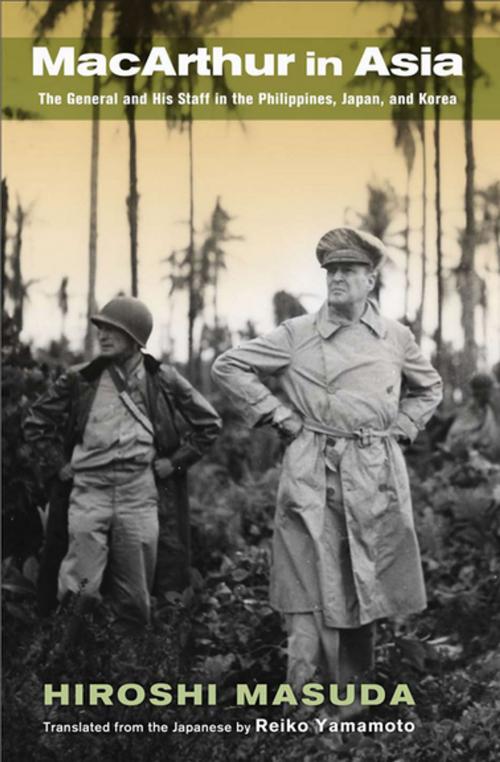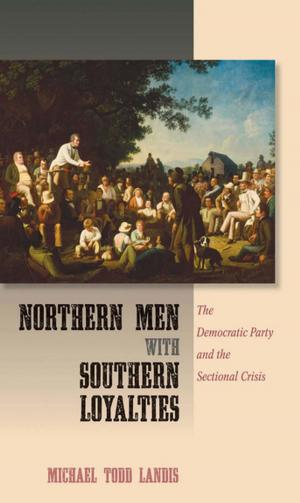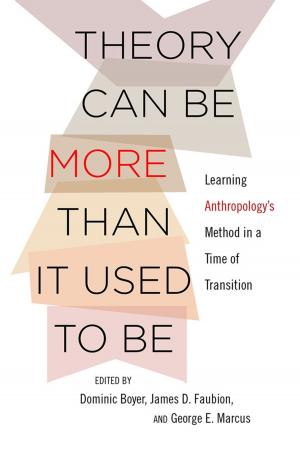MacArthur in Asia
The General and His Staff in the Philippines, Japan, and Korea
Nonfiction, History, Military, World War II| Author: | Hiroshi Masuda | ISBN: | 9780801466182 |
| Publisher: | Cornell University Press | Publication: | December 15, 2009 |
| Imprint: | Cornell University Press | Language: | English |
| Author: | Hiroshi Masuda |
| ISBN: | 9780801466182 |
| Publisher: | Cornell University Press |
| Publication: | December 15, 2009 |
| Imprint: | Cornell University Press |
| Language: | English |
"Hiroshi Masuda reinterprets MacArthur by going back to his years in the Philippines. In particular, [the book] focuses on the ‘Bataan Boys,’ the group of subordinates who accompanied MacArthur in his 1942 evacuation from the Philippines, and their views of MacArthur. MacArthur in Asia offers valuable insights into not only MacArthur’s public persona but also his personal and human characteristics, demonstrating the strengths of the biographical approach to historical scholarship."—Asahi Shimbun
"This book offers an integrated view that links wartime and postwar Japan through the figure of one person, Douglas MacArthur. The Occupation appears as an extension of the war, and we are left with the historical awareness that, in East Asia, war continued even after 1945."—Tokyo Shimbun
General Douglas MacArthur’s storied career is inextricably linked to Asia. His father, Arthur, served as Military Governor of the Philippines while Douglas was a student at West Point, and the younger MacArthur would serve several tours of duty in that country over the next four decades, becoming friends with several influential Filipinos, including the country’s future president, Emanuel L. Quezon. In 1935, he became Quezon’s military advisor, a post he held after retiring from the U.S. Army and at the time of Japan’s invasion of 1941. As Supreme Commander for the Southwest Pacific, MacArthur led American forces throughout the Pacific War. He officially accepted Japan's surrender in 1945 and would later oversee the Allied occupation of Japan from 1945 to 1951. He then led the UN Command in the Korean War from 1950 to 1951, until he was dismissed from his post by President Truman.
In MacArthur in Asia, the distinguished Japanese historian Hiroshi Masuda offers a new perspective on the American icon, focusing on his experiences in the Philippines, Japan, and Korea and highlighting the importance of the general’s staff—the famous "Bataan Boys" who served alongside MacArthur throughout the Asian arc of his career—to both MacArthur’s and the region’s history. MacArthur implemented far-reaching democratic reforms under the Occupation. MacArthur's policy and view on the reforms are eloquently described based on Masuda's thorough studies. First published to wide acclaim in Japanese in 2009 and translated into English for the first time, this book uses a wide range of sources—American and Japanese, official records and oral histories—to present a complex view of MacArthur, one that illuminates his military decisions during the Pacific campaign and his administration of the Japanese Occupation.
"Hiroshi Masuda reinterprets MacArthur by going back to his years in the Philippines. In particular, [the book] focuses on the ‘Bataan Boys,’ the group of subordinates who accompanied MacArthur in his 1942 evacuation from the Philippines, and their views of MacArthur. MacArthur in Asia offers valuable insights into not only MacArthur’s public persona but also his personal and human characteristics, demonstrating the strengths of the biographical approach to historical scholarship."—Asahi Shimbun
"This book offers an integrated view that links wartime and postwar Japan through the figure of one person, Douglas MacArthur. The Occupation appears as an extension of the war, and we are left with the historical awareness that, in East Asia, war continued even after 1945."—Tokyo Shimbun
General Douglas MacArthur’s storied career is inextricably linked to Asia. His father, Arthur, served as Military Governor of the Philippines while Douglas was a student at West Point, and the younger MacArthur would serve several tours of duty in that country over the next four decades, becoming friends with several influential Filipinos, including the country’s future president, Emanuel L. Quezon. In 1935, he became Quezon’s military advisor, a post he held after retiring from the U.S. Army and at the time of Japan’s invasion of 1941. As Supreme Commander for the Southwest Pacific, MacArthur led American forces throughout the Pacific War. He officially accepted Japan's surrender in 1945 and would later oversee the Allied occupation of Japan from 1945 to 1951. He then led the UN Command in the Korean War from 1950 to 1951, until he was dismissed from his post by President Truman.
In MacArthur in Asia, the distinguished Japanese historian Hiroshi Masuda offers a new perspective on the American icon, focusing on his experiences in the Philippines, Japan, and Korea and highlighting the importance of the general’s staff—the famous "Bataan Boys" who served alongside MacArthur throughout the Asian arc of his career—to both MacArthur’s and the region’s history. MacArthur implemented far-reaching democratic reforms under the Occupation. MacArthur's policy and view on the reforms are eloquently described based on Masuda's thorough studies. First published to wide acclaim in Japanese in 2009 and translated into English for the first time, this book uses a wide range of sources—American and Japanese, official records and oral histories—to present a complex view of MacArthur, one that illuminates his military decisions during the Pacific campaign and his administration of the Japanese Occupation.















